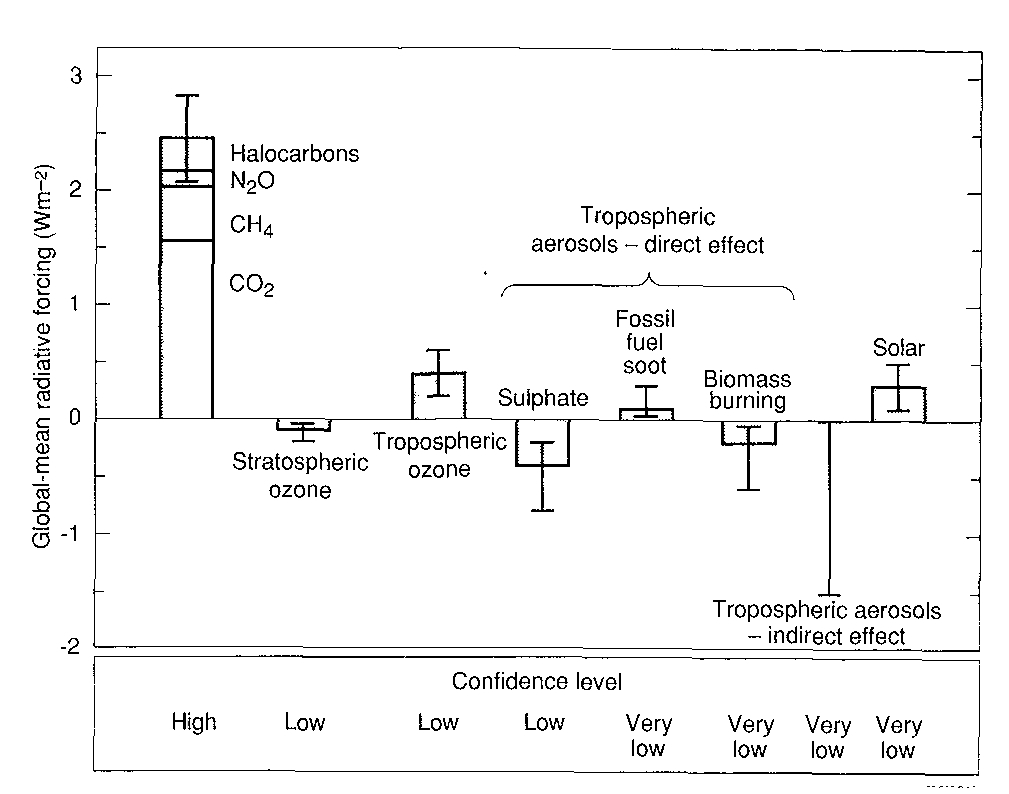CrusaderFrank
Diamond Member
- May 20, 2009
- 146,226
- 69,205
The effect of black carbon has been noted on these diagrams for almost as long as they've been making them. Here seems to be the first appearance (as "Fossil fuel soot") in a graphic from the Second Assement Report in 1995
Shortly thereafter, the 1995 IPCC Second Assessment Report (pdf) added a couple of innovations:
Namely, an assessment of confidence, and the addition of aerosol forcings, while lumping the well-mixed gases all together. There is also the addition of the non-anthropogenic solar term.
Can this theory be tested in a lab where each item is isolated and controlled and changes in temperatures measured?

